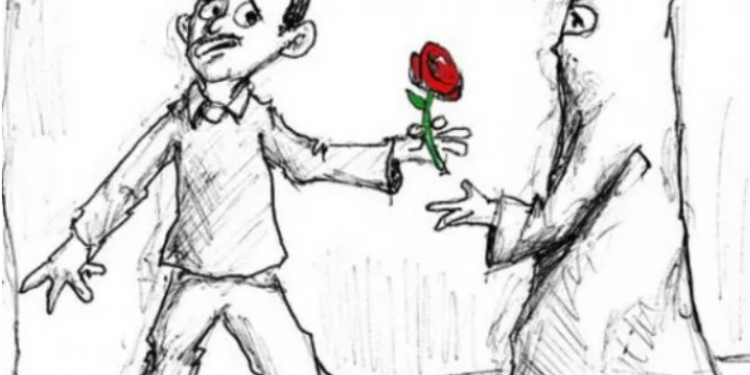I used to think Valentine’s Day was a secular holiday, and that people took time off work to spend with their loved ones. I was wrong, I’d made a bad choice.
It surprised me that some cultures do not only do not celebrate Valentine’s Day but that it is nearly forbidden in other cases.
This list includes many civilizations and religions, including Islam, according to a Muslim acquaintance. Her logic made perfect sense inside the religious belief system. Because February 14th is a day loosely dedicated to romantic love, Muslims generally hold a negative view of it. Here are some of the main causes.
The legislation allows people to pray only during festivals
Because Valentine’s Day is seen as a Roman holiday, Islam claims it has no historical origins and so is not existent in Islam, characterising it as a distinct Christian form. The Muslim festival of Eid, for example, is now recognised as a unique occasion that neither the Christian nor the Jewish religions recognise. However, Christians and Muslims do not celebrate Hanukkah, a worldwide Jewish celebration. Non-Islamic holidays are typically considered wicked by Muslims owing to the danger of inciting disbelief.
The Quran offers a thorough list of all essential Muslim festivals
This section will teach you about prayer, fasting, and remembering important dates. All of these practices like Valentines are considered paganism and are thus illegal. Valentine’s Day (and other holidays) are uniquely observed by Christians, much as Muslims have their own big festival, Eid, which is not observed by other religions.
Paganism’s Dangerous Influence
Valentine’s Day is seen as a Middle Ages descendent of Roman paganism, rather than a founding event of the old Christian faith, which was observed on February 14. Christian theology places a premium on young teenagers falling in love. Almost every Muslim knows that idolatry or incorporating pagan elements is strictly forbidden, especially during festivals and other celebrations. “Anyone who imitates a country is considered one of that people,” says the Muslim prophet Muhammad.
True love is not romantic, it takes place daily
Simply stated, strong love outside of marriage is frowned upon in Islamic culture. Rather than “pure love,” some Muslim scholars believe Valentine’s Day is about “uncommitted love” seen in relationships between girlfriends, boyfriends, and mistresses. If not dealt with effectively, adultery and giving in to carnal desires are unethical and may lead to immoral behaviour. Valentine’s Day is irrelevant to a husband and wife who love one other unconditionally and well all year. A holy and everlasting connection does not need a certain day, as though the husband and wife would love each other more if they only spent one day together.
In most Muslim marriages, the husband showers his wife with gifts, poems, and other devotion throughout the year. There is no need for festivals to show one’s sentiments of love and devotion towards another. Because love is a universal notion, Islam puts a high value on it. In Islam, passionate love, in particular, leads to unethical behaviour and should be avoided.
Final Words
So, sure, I think Islam celebrates Valentine’s Day. The answer is a resounding NO! Don’t invite your Muslim friends to your Valentine’s Day party! In mostly Muslim countries like Pakistan, a sizable minority of the population tends to have more liberal views than the majority on both themes. As predicted, Pakistani authorities responded by issuing decrees and fatwas banning future celebrations from taking place in the nation. Despite Islam’s explicit repudiation of the holiday, it is impossible to answer “Do Muslims celebrate Valentine’s Day?” According to the statistics, a minority of Muslims support observing Anti-Day Valentine’s on February 14.





